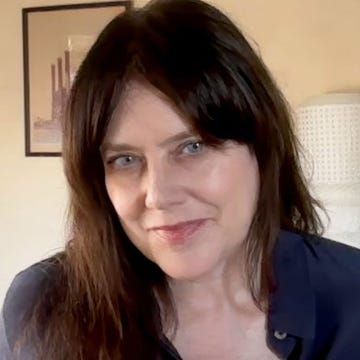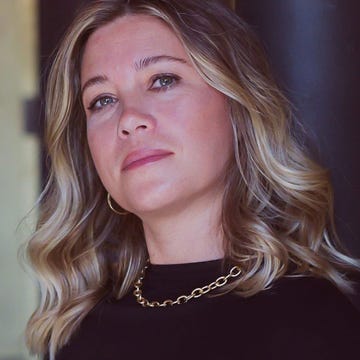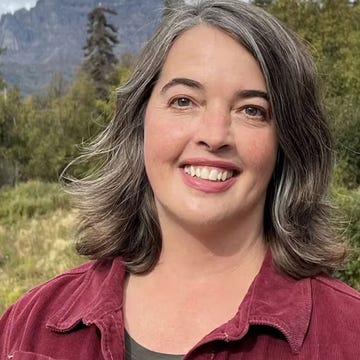Optimism, I’m convinced, is an inborn trait,” the bestselling crime novelist and psychologist Jonathan Kellerman tells me. Kellerman is the author of the long-running mystery series featuring child psychologist Alex Delaware and his best friend, the gay cop Milo Sturgis. Kellerman’s thrillers are characterized not only by dead bodies and evil but also by insights into what motivates human behavior. The books are narrated by Alex in a down-to-earth voice—one similar to Kellerman’s speaking voice—that’s full of observations about what experiences cause people to act as they do, whether it’s homelessness or bad parents. In the latest, The Ghost Orchid, Alex and Milo are looking into a double homicide discovered by a pool boy in opulent Bel Air.
Kellerman is speaking to me from the office of a huge house in Los Angeles that he and his wife, the bestselling crime novelist Faye Kellerman, bought in 1992. His children, two psychologists and two writers, and his grandchildren live elsewhere—there are 22 family members when the clan gathers in the house. Today, the couple live with a menagerie, including a 5,000-gallon koi pond like the one Alex has; rescue turtles and birds; and “genius” rescue dog Colette, who comes in and out of Kellerman’s office.
Behind Kellerman are classically beautiful bookshelves, possibly walnut, spanning two walls and full of hardcovers, along with a brown leather armchair and a guitar. He comments, however, that he could work anywhere, saying, “In my early days as a failed writer, I worked in an unfinished garage, where my companions were spiders, basically.” He goes on to tell me how he’d come home from the hospital where he worked in behavioral pediatrics dealing with the psychological aspects of physical disease and see his wife and kids, who’d go to bed between 11 p.m. and 1 a.m., before heading into the garage to work—there, he would sometimes scare himself.
At that time, he was trying to find his voice but “loath to self-expose,” and he tried different kinds of stories, including comic fiction. As a “practical guy,” he explains, he hadn’t ever believed that writing was going to be his main job. With four children, he believed he couldn’t afford to write novels full-time. He’d been writing since the age of nine and spent 13 years as a self-proclaimed “failed novelist” trying to get published without success.
The intense work ethic he brought to his early writing career manifested young—he hadn’t grown up with money and sold newspapers on the corner when he was 12. In graduate school, he held down three part-time jobs, and he took his qualifying exams with a 103-degree fever.
By the time he wrote his debut, When the Bough Breaks, published in 1985, Kellerman had been a psychologist for seven years and built up life experience. He believed nobody was writing psychologists authentically; many books featured psychologists who were either an “evil Svengali or a neurotic wimp.” But on the contrary, he had found psychologists to be a “stable, normal, very intelligent bunch of people.”
His debut centered on Alex investigating the memory of a seven-year-old who witnessed a brutal murder—Kellerman later moved away from writing about children but still writes about how people behave under stress.
In the debut is a passage about how therapists are often more optimistic than other people because they believe people can be better. I ask Kellerman if he still believes that now, decades later, and he says firmly, “I’m not a fantasist. I know what’s out there. I was an expert witness. And I dealt with terrible things. I dealt with child abuse when no one knew what it was.”
During a period when he worked with patients in oncology, he’d become aware of stress as a trigger for divulging kinds of dark secrets, including those rooted in trauma, about which he became an expert. He says, “That’s how I view writing crime novels. Stuff’s out there, but I want to resolve it. I can’t resolve it in real life. But I can make it happen as a novelist.”
Kellerman’s debut was bought as a small book for no money and backed by little promotion, except, he says, some attention around his day job. “I got some exposure because I was an oddity.” But, to his publisher’s surprise, When the Bough Breaks became a word-of-mouth bestseller. Kellerman decided he’d try another one—it also became a bestseller, as did the next three books. “Sixty books later, it’s kind of amazing to me, because I never expected it.”
Kellerman notes that people often ask him, “What’s the difference between your jobs?” He responds, “Well, as a psychologist, I was interested in learning and establishing rules of human behavior. As a novelist, I want to deal with the exceptions to this. That’s what’s interesting.” The demands of being a novelist and a psychologist, however, proved antithetical. Although he loved his practice and found it gratifying, Kellerman mostly stopped working as a psychologist in 1990. He continues to write now, even as his wife has stopped, he reports, because he’s “compelled to do it, addicted to it.”
Notwithstanding the stately elegance of his office, Kellerman elaborates that inspiration for his books has always come from within. “Those of us who’ve been doing it a long time—guys like Stephen King and Dean Koontz, myself and the late Sue Grafton, who was a great friend—we all share a certain thing. We’ve talked about this, and that is, it’s a job…and we’re professional about it, and we’re reliable about it.… I don’t wait for inspiration.”
Writing has long been a family affair, but while each writer maintains their own habits, some overlap. Kellerman outlines meticulously as a self-described perfectionist—he, his wife, and his son Jesse Kellerman all start their writing day by rewriting yesterday’s pages before beginning a new section—but the end result still surprises him. He tells me, “I still love it as much as when I was nine years old.… I’m a happy novelist.”
Back in 1985, before When the Bough Breaks was published, his wife, who had a theoretical-math background, came to him while he was holding their newborn and handed him a “sheaf of papers,” saying, “Read this. It’s no good. You’ll hate it.” He considered himself the literary person and her the science person and thought, “Oh, no, this is a terrible position to be in.” He goes on, “Then I read it honestly, and it’s really good. I’m freaking out. I had known Faye for 12 or 13 years.… You think you know somebody, you know? I say, ‘Honey, this is really good.’ She thought I was patronizing her. So we had a fight.”
When he took his wife’s book to his agent, the agent’s “eyes were rolling back in his head,” but Faye was published in 1986. The couple used to be each other’s first readers, Kellerman says, but as the years passed, they would read only each other’s finished books. While he writes two to three hours a day these days, he notes that his son, also a successful novelist with whom he has coauthored books, is even more of a perfectionist and needs eight hours to write.
With repeated, long-lasting success, Kellerman has seen his writing routines change drastically. “Now, of course, I have the luxury. I like to write in the morning. I like to get up and, you know, go about my routines and sit with my wife, who I love, and we have coffee and I exercise a little bit and shower and I get dressed because I think it’s a job—I don’t do it in my pajamas. Come to this gorgeous office, and I work, but I have found that even if I can’t, I can write anytime, and I can write in a closet.”•
Join us on February 15 at 5 p.m. Pacific, when author Dave Eggers will appear in conversation with special guest Caterina Fake and California Book Club host John Freeman to discuss The Every. Register for the Zoom conversation here.












